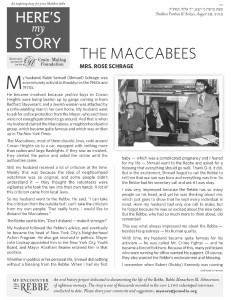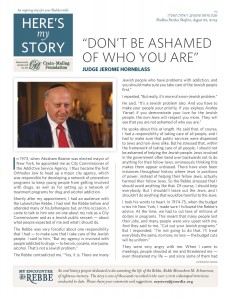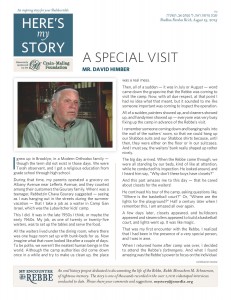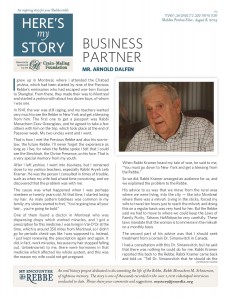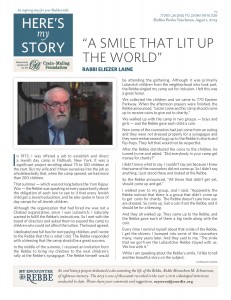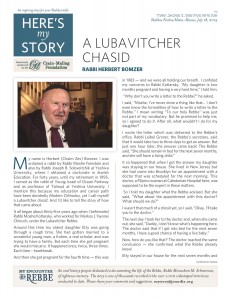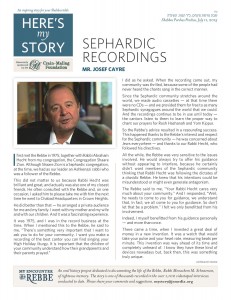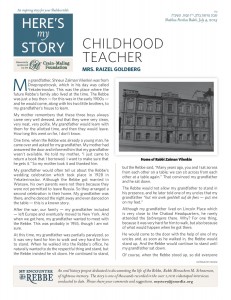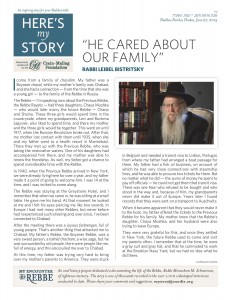The Maccabees
My husband, Rabbi Samuel (Shmuel) Schrage, was a community activist in Brooklyn in the 1960s and 1970s.
He became involved because yeshiva boys in Crown Heights were being beaten up by gangs coming in from Bedford Stuyvesant, and a Jewish woman was attacked by a knife-wielding man in her own home. My husband went to ask for police protection from the Mayor, who said there was not enough police to go around. And that is when my husband started the Maccabees, a neighborhood patrol group, which became quite famous and which was written up in The New York Times.
The Maccabees, most of them chasidic Jews, rode around Crown Heights six to a car, equipped with nothing more than radios and large flashlights. If they saw an incident, they alerted the police and aided the victim until the authorities came.
Still, my husband received a lot of criticism at the time. Mainly this was because the idea of neighborhood watchmen was so original, and some people didn’t understand it – they thought the volunteers were vigilantes who took the law into their own hands. A lot of this criticism came from local Jews.
So my husband went to the Rebbe. He said, “I can take the criticism from the outside but I can’t take the criticism from my own people. That really hurts. I would like to disband the Maccabees.”
The Rebbe said to him, “Don’t disband – make it stronger!”
My husband followed the Rebbe’s advice, and eventually he became the head of New York City’s Neighborhood Action Program. He also got involved in politics. Mayor John Lindsay appointed him to the New York City Youth Board, and Mayor Abraham Beame retained him in that position.
Whether in politics or his personal life, Shmuel did nothing without a blessing from the Rebbe. When I had my first baby – which was a complicated pregnancy and I feared for my life – Shmuel went to the Rebbe and asked for a blessing that everything should go well. Thank G-d, it did. But in the excitement, Shmuel forgot to call the Rebbe to tell him that our son was born and everything was fine. So the Rebbe had his secretary call and ask if I was okay. (more…)


